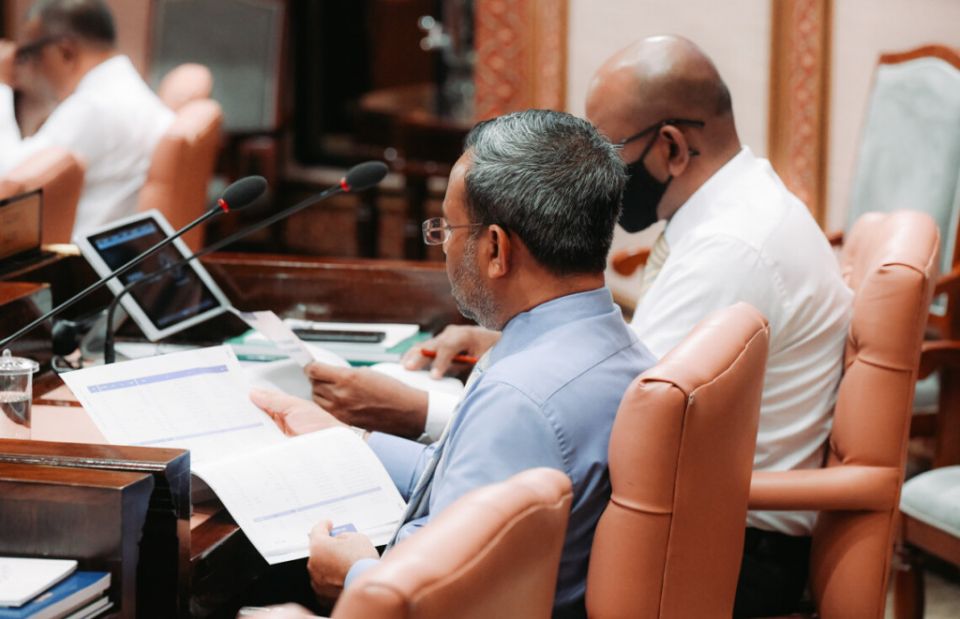
Maldives government on Monday proposed an MVR42.6 billion state budget for next year, keeping with the increasing annual trend.
Finance Minister Ibrahim Ameer presenting the state budget to the parliament on Monday, said next year's budget aims to ensure fiscal and debt sustainability while mitigating the challenges caused by the global economic crisis stemming from the Russian-Ukrainian war.
The proposed budget for next year is MVR 5.8 billion, higher than the MVR 36.9 billion budget approved for the current year.
Although the total budget amount is enormous in number, the total budget deficit is smaller compared to this year's budget deficit. While the budget passed this year is a deficit budget by MVR 12.6 billion, the deficit next year will be MVR 8 billion.
Tax revenue is expected to account for 73.3 percent of the MVR 32.1 billion in revenue expected next year, while grants are expected to account for 7.7 percent. Therefore, revenue without grants is expected to be about MVR 29.9 billion.
The main reason for the budget deficit reduction compared to the current year is the increase in some taxes starting next year. The GST rate hike from 6 to 8 percent from January next year is expected to generate an additional MVR 973.3 million next year. The TGST hike from 12 percent to 16 percent is expected to add MVR 2.7 billion.
Therefore, the tax change alone will add a total of MVR 3.7 billion to government revenue next year. The change will also increase the country's revenue growth expectations in the coming years, the Finance Ministry said.

Budget expenditures
Over MVR 40.6 billion of this year's budget is for various expenditures, with the remaining MVR 2.1 billion budgeted for debt repayment. The biggest expenditure in next year's budget would be recurrent expenditure. Recurrent expenditure accounts for 67 percent of the budgeted expenditure of MVR 40.6 billion. This figure is up 1.9 percent from this year, according to figures.
The next largest expenditure would be on economic and industrial development. While MVR 10.5 billion has been allocated for this purpose, the figure is MVR 1.4 billion less than the MVR 11.9 billion allocated for the sector this year.
Debt service and economic productivity
In the budget proposed for next year, MVR 5.5 billion has been allocated for debt service and repayment. This figure is MVR 500 million less than the MVR 6 billion allocated for this year. The next largest expenditure would be on the health sector. The sector has been allocated MVR 5 billion next year, half a billion more than this year.
When the Finance Ministry prepared its budget for next year, it is said to have paid great attention to planning the budget such that the rights of future generations are not restricted, as the burden of budget financing by borrowing money would fall on future generations. The minister said the most important step is to lower debt in proportion to productivity and maintain debt-financed expenditure at a level that will not increase the burden of repaying debt.
Presenting the budget, Minister Ameer predicted that the economy would accelerate next year and productivity would grow by 7.6 percent. He estimated that the figure would remain at 7.1 percent over the next three years.
The budget forecasts inflation to rise to 5.4 percent next year due to rising commodity prices and tax increases. However, inflation is expected to remain at 2.1 percent in the medium term as global prices fall and tax changes stabilize.




